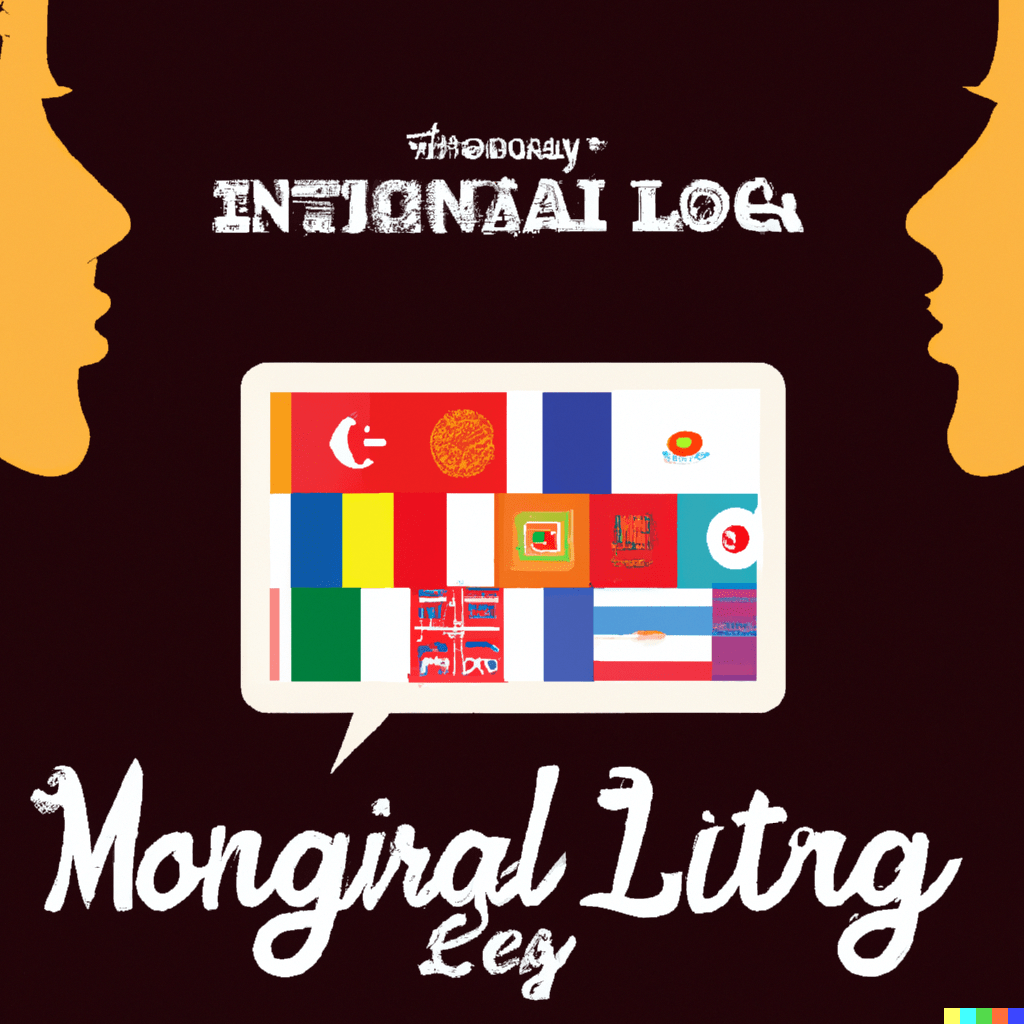INTERNATIONAL MOTHER LANGUAGE DAY

February 21, 1952, is a day that holds immense significance in the history of the Bangladeshi people. It is the day when they lost their loved ones in the pursuit of preserving their mother tongue, Bengali, which was threatened by the imposition of Urdu by the then-government of Pakistan. The incident sparked a war for language that would culminate in the liberation of East Pakistan, now known as Bangladesh, in 1971.
The struggle for language began when Pakistan, which was created after the partition of India in 1947, decided to impose Urdu as the sole national language, ignoring the majority Bengali-speaking population of East Pakistan. The Bengali-speaking people of East Pakistan protested against this decision and demanded that Bengali be recognized as one of the national languages of Pakistan. The government responded to these demands with violence, which resulted in the death of several students and activists who were fighting for their language.
The names of some of the martyrs who sacrificed their lives on this day have become synonymous with the struggle for language in Bangladesh. Abdul Jabbar, Abdus Salam, Rafiq Uddin Ahmed, Shafiur Rahman, and Barkat are just a few of the names of those who lost their lives in the struggle for the recognition of Bengali language. The movement gained momentum after these killings, and people from all walks of life joined the movement to preserve their language and culture.
The movement for language culminated in the historic Language Movement Day on February 21, 1952, when students from various colleges and universities gathered to protest against the imposition of Urdu. They marched towards the Dhaka University campus, where the police and military forces were waiting for them. The students were unarmed, but the police and military forces opened fire on them, killing several people on the spot. The bloodshed that ensued on that day marked the beginning of the end for the Pakistani government in East Pakistan.
The Language Movement of 1952 paved the way for the ultimate victory of the Bengali-speaking people in their struggle for self-determination. After a long and arduous struggle, Bangladesh gained its independence in 1971. Today, February 21 is celebrated as International Mother Language Day, which was proclaimed by the United Nations Educational, Scientific and Cultural Organization (UNESCO) in November 1999. This day is dedicated to promoting linguistic and cultural diversity and multilingualism around the world.
The idea to celebrate International Mother Language Day was the initiative of Bangladesh. Bangladeshis take great pride in their mother tongue and the sacrifices made by their ancestors to preserve it. On this day, people all over Bangladesh pay homage to the martyrs who gave their lives for their language and celebrate their cultural identity. It is a reminder of the power of language and the resilience of the human spirit in the face of adversity.
Indeed, the Language Movement of 1952 and the sacrifices made by the martyrs to preserve the Bengali language are remembered and commemorated every year on February 21. This day is a national holiday in Bangladesh, and it is also observed internationally by many educational institutions, government and non-government organizations, and Bengali communities around the world.
On this day, people gather at the Shaheed Minar, a monument in Dhaka dedicated to the martyrs of the Language Movement, to pay their respects and lay flowers. The monument is illuminated in the colors of the Bangladesh flag, and people sing songs and recite poems in honor of the martyrs. Schools, colleges, and universities organize cultural programs and debates to raise awareness about the importance of preserving linguistic and cultural diversity.
Many government and non-government organizations also observe the day by organizing seminars, workshops, and cultural events to promote the use of mother languages and multilingualism. The day is an opportunity to celebrate linguistic and cultural diversity and to recognize the importance of preserving and promoting all mother languages.
In addition to Bangladesh, International Mother Language Day is also observed by UNESCO and its partner organizations around the world. Each year, UNESCO chooses a theme for the day, which highlights different aspects of language diversity and multilingualism. The themes for previous years have included “Towards Sustainable Futures through Multilingual Education” and “Indigenous Languages Matter for Development, Peace building, and Reconciliation.”
Overall, the Language Movement of 1952 and the events that followed serve as a reminder of the power of language and the importance of preserving linguistic and cultural diversity. The sacrifices made by the martyrs continue to inspire people to fight for their rights and to promote the use of mother languages and multilingualism.